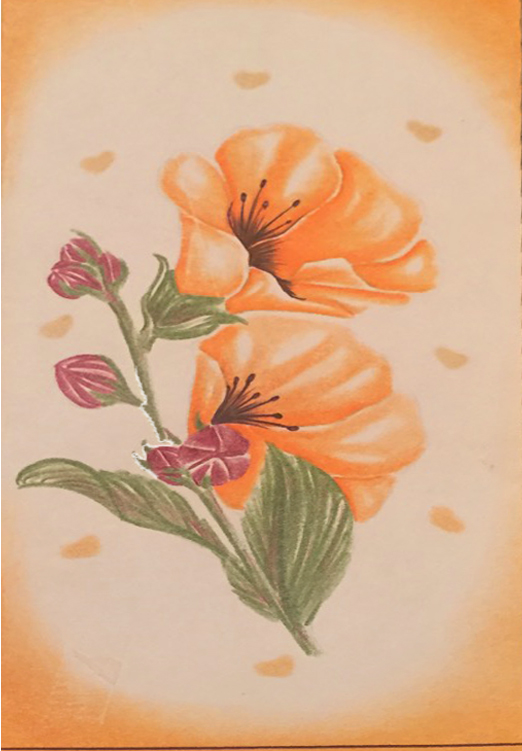Ally was a true humanitarian; she believed that every living thing was good and worthy of unconditional love. And she demonstrated that philosophy perhaps in no greater a way than in the three-year correspondence she maintained with John, a forty-seven year old man serving a life sentence in a Texas prison.
This correspondence was important to them both. When John didn’t have any actual paper, he wrote to Ally on toilet paper: when she realized that prisoners were regularly denied something as basic as pen and paper, she asked her parents if they could send John a little money to buy these things in the prison commissary.
John had hand-painted and neatly lettered a beautiful card for Ally’s twenty-first birthday (May 27th) and had mailed it with enough time to make its long trip to New Zealand. In it he thanks Ally for being born, writing, “Your presence makes the world a better place, particularly my world,” and wished her “ten million more lovely breaths.” Heartbreakingly, the card was never received, it was en route when the tragedy struck.
John received news of what happened from Ally’s sister, Emily. “She was the only person in the world who genuinely cared about me,” he wrote, his pain palpable. “She reached out to me, a nobody; she gave me love and dignity when no one else would.”
If you’re interested in showing your humanity by reaching out to a prisoner, there are a number of organizations dedicated to prisoners’ rights and to helping inmates cope with incarceration. We found the Inside Books Project to be a great resource.
John also blogs regularly, you can read about him and the prison experience here.


